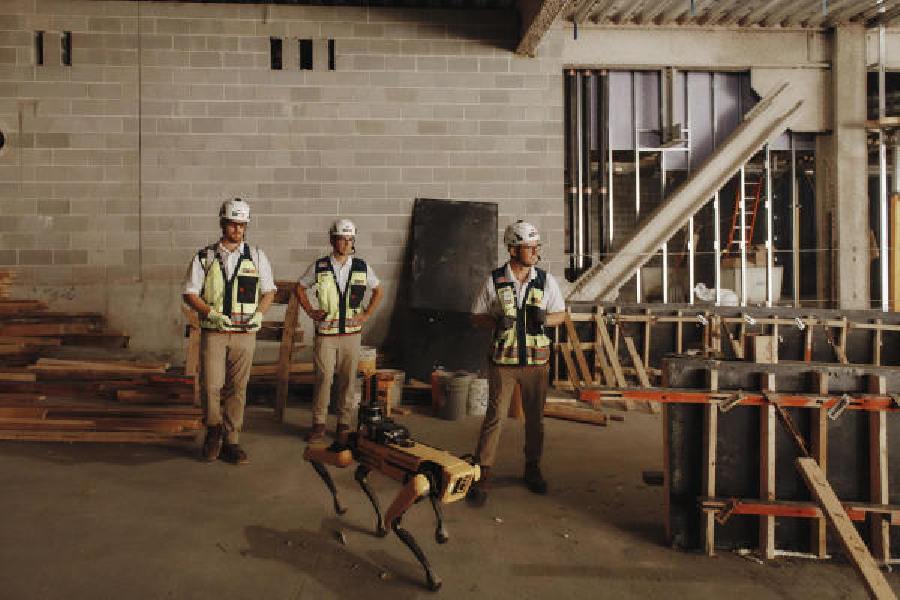Meant as a sly swipe at the inflated hype around AI, a billboard at a construction site in Antwerp, Belgium, read “Hey ChatGPT, finish this building.”
AI won’t be assembling apartments or erecting stadiums anytime soon, but in construction the rapid embrace of the technology may change how quickly projects are finished.
“Forget about robots building a skyscraper,” said James Swanston, CEO of Voyage Control, which makes project management software for construction sites. “It’s a more fundamental thing, getting the data you need and then using it better.”
The construction industry has long been considered a digital laggard, but architects use digital tools to design projects and create blueprints. Seeing tablets and drones on the same sites as hard hats and safety vests is common.
Now helmet-mounted cameras capture footage of a site to orchestrate when new crews or materials should arrive, and precise sensors can detect whether a new window is a few millimeters off the project blueprint and needs to be adjusted.
But the industry’s embrace of AI technology faces challenges, including concerns over accuracy and hallucinations, in which a system provides an answer that is incorrect or nonsensical.
And further data collection has been a knotty problem, in large part because of the nature of huge construction projects: no two developments are the same, with wildly varying topography and local regulations, and new teams of contractors and subcontractors coming together for each project.
The pandemic had already pushed construction firms to adopt more digital tools... accelerating the development of new tech, said Sarah Liu, of Fifth Wall, a venture capital firm. “The best ones aren’t touting themselves as AI companies... but as problem-solving companies,”she said.
Buildots, a startup in Israel that provides project management guidance via wearable cameras that analyse building progress, signed a deal for its first New York project, a mixed-use development in Manhattan. The firm commissioned a study of 64 international building sites, and it found that just 46 per cent of the average worksite was being used at any time, evidence of poor organisation and scheduling.
An affiliate of Suffolk, a large construction firm based in Boston, invested $110 million to fund construction start-ups, and Suffolk has a team of 30 data analysts collecting and scrutinising information from job sites. At a construction site for South Station Tower in Boston, a 51-story development by Hines, cranes have cameras that document and label steel being used on the building’s frame, creating a data set expected to be used on other projects in the future.
Additional programs are being used to track progress and even predict accidents.
“We have zero unemployment in the industry; technology is just going to help existing workers do more,” said John Fish, chair and CEO of Suffolk. “AI is just going to replace the companies that don’t use AI.”
There is trepidation about AI and its reported issues with accuracy being used in an industry where safety is so important.
Programs like ChatGPT have a tendency to occasionally make up answers based on incorrect predictions, said Julien Moutte, chief technology officer at Bentley Systems, a construction software firm. “In infrastructure, this is something we can’t afford,” he said. “We can’t have AI hallucinate the design of a bridge.”
Tony Hernandez, a union car- pentry trainer in Northern California, US, who teaches apprentices to use drones and Dusty robots, sees these techs as “just another tool”. He prefers the robot to trace lines instead of having to bend down and trace himself, meaning less wear and tear on his knees.
Reducing risk may ultimately be where this tech makes its mark. Depending on the location and nature of work, insurance can be as much as 10 per cent of the cost of a project, which can be hundreds of millions of dollars. With AI providing better ways to keep on task, there is less risk and cheaper insurance options.










